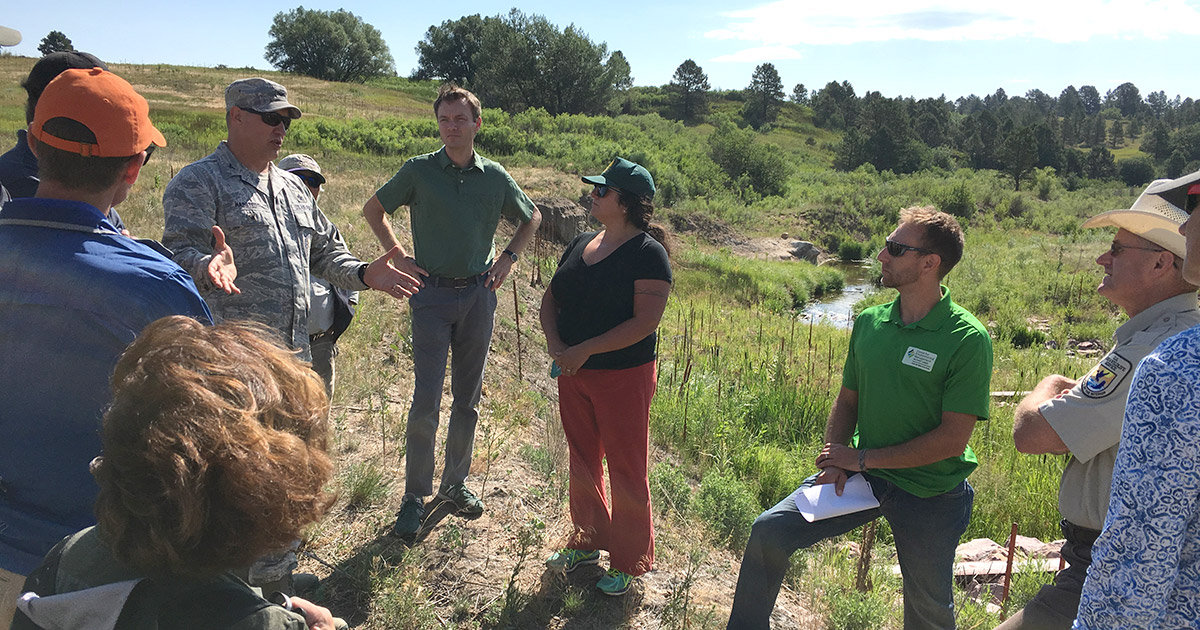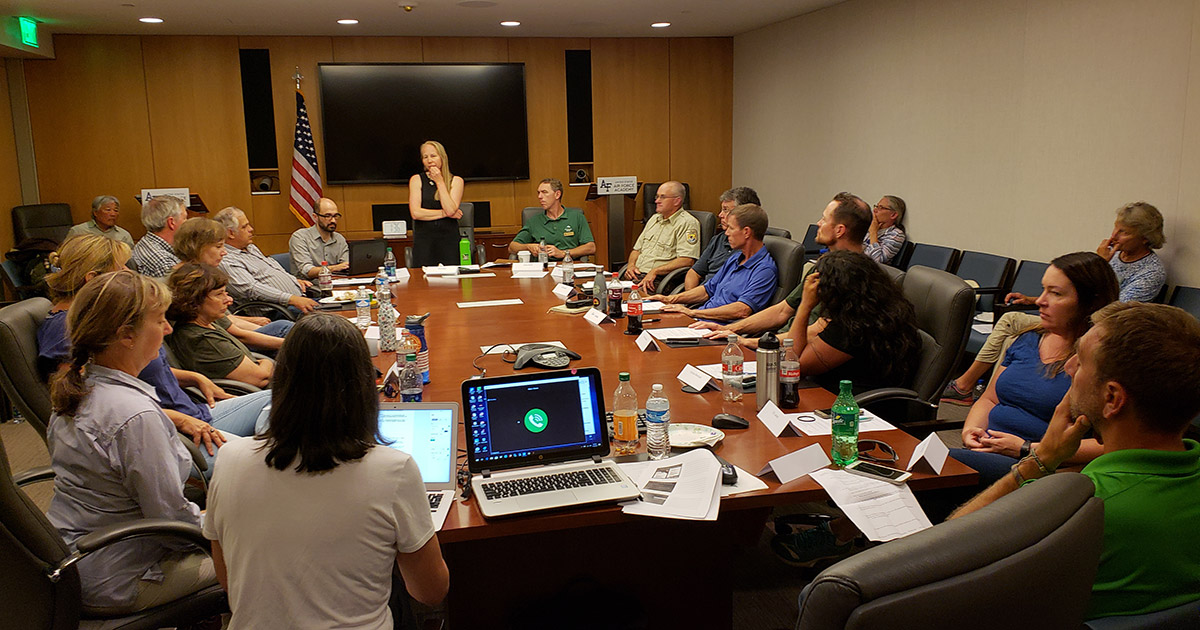
CSU Natural Resources Consortium participants attend a field tour of work by the Center for Environmental Management of Military Lands. Credit: Ryan Lockwood
Written by Ryan Lockwood, Colorado State Forest Service
Earlier this summer, experts from several natural resources-oriented centers at Colorado State University met with staff for U.S. Sen. Michael Bennet to offer insights into how increased severe weather events and changing weather patterns are impacting Colorado.
Held at the U.S. Air Force Academy in Colorado Springs, the roundtable discussion was focused on how landowners are adapting to increased risks of drought, floods and other changing weather patterns. Participants shared about specific practices by farmers and landowners to mitigate those risks.
Issues involved both agricultural and forested settings. Staff from the Colorado State Forest Service highlighted how well-established trees planted decades ago, to create living snow fences and wind breaks along roadways on the eastern plains, have been dying out – including even highly drought-tolerant species. Other Forest Service personnel covered the increasing need for “defensible space” around homes to reduce wildfire risk in the face of longer fire seasons and larger fires. CSU Extension staff brought up how matching the genetics of cattle to various landscapes might be a long-term solution for ranchers, who face increasing drought and warmer temperatures.
“As Sen. Bennet visits with farmers and ranchers across Colorado, he recognizes the challenges they are facing due to changing weather patterns,” said Annie Oatman-Gardner, Pikes Peak regional director for Bennet. She says that as a member of the Agriculture Committee, the senator helped craft a Farm Bill that supports farmers and ranchers facing those challenges.
Natural Resources Consortium annual meeting
Twenty-eight participants were at the Academy for this year’s CSU Natural Resources Consortium meeting, which brings together staff from CSU Extension and Warner College of Natural Resources entities. These entities include the Colorado State Forest Service, Center for Environmental Management of Military Lands (CEMML) and Colorado Natural Heritage Program. At this year’s July 11-12 event, the U.S. Fish and Wildlife Service also joined the discussions.
The focus of the 2018 consortium was “Exploring Climate Change and the Tools to Move Forward,” with presenters that included the former and current state climatologists; and Dennis Ojima, professor in the Department of Ecosystem Science and Sustainability and co-lead of the North Central Climate Science Center. Participants also went on field tours to explore how climate change might impact land managers’ specific efforts, visiting CEMML project sites at the Air Force Academy before sitting down with Bennet’s staff.
Oatman-Gardner was joined by Bennet’s regional director in the San Luis Valley, Erin Minks, as they work to better understand how changing, more severe weather may be affecting Coloradans, particularly in rural settings. They conveyed that they are actively seeking the perspective of land managers, outreach professionals and other boots-on-the-ground experts who work with public land managers and private landowners throughout the state. Afterward, they expressed that the meeting was a valuable one.
“The discussion was robust, and we have a lot of follow-up to do,” said Oatman-Gardner.

Staff from U.S. Sen. Michael Bennet’s office participated in a roundtable discussion on changing weather patterns and impacts on landowners, during the CSU Natural Resources Consortium meeting in July. Credit: Mark Platten, CSU Extension